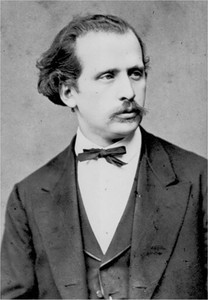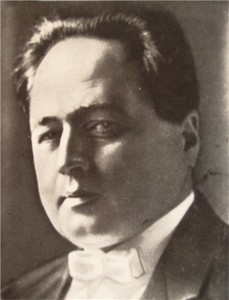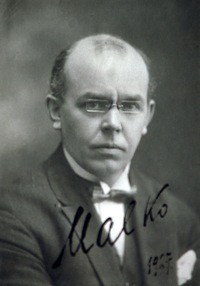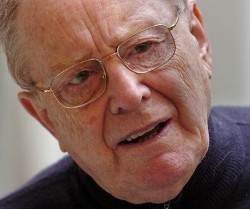
Nikolai Rubinstein (Nikolai Rubinstein) |
Nikolai Rubinstein

Russian pianist, conductor, teacher, musical and public figure. Brother of A. G. Rubinstein. From the age of 4 he learned to play the piano under the guidance of his mother. In 1844-46 he lived in Berlin with his mother and brother, where he took lessons from T. Kullak (piano) and Z. Dehn (harmony, polyphony, musical forms). Upon his return to Moscow, he studied with A. I. Villuan, with whom he made his first concert tour (1846-47). In the early 50s. entered the law faculty of Moscow University (graduated in 1855). In 1858 he resumed concert activity (Moscow, London). In 1859 he initiated the opening of the Moscow branch of the RMS, from 1860 until the end of his life he was its chairman and conductor of symphony concerts. The music classes organized by him at the RMS were transformed in 1866 into the Moscow Conservatory (until 1881 its professor and director).
Rubinstein is one of the most prominent pianists of his time. However, his performing arts were little known outside of Russia (one of the exceptions was his triumphant performances at the concerts of the World Exhibition, Paris, 1878, where he performed the 1st Piano Concerto by P. I. Tchaikovsky). Mostly gave concerts in Moscow. His repertoire was enlightening in nature, striking in its breadth: concertos for piano and orchestra by J. S. Bach, L. Beethoven, F. Chopin, F. Liszt, A. G. Rubinstein; works for piano by Beethoven and other classical and especially romantic composers – R. Schumann, Chopin, Liszt (the latter considered Rubinstein the best performer of his “Dance of Death” and dedicated his “Fantasy on the Themes of the Ruins of Athens” to him). A propagandist of Russian music, Rubinstein repeatedly performed Balakirev’s piano fantasy “Islamey” and other pieces by Russian composers dedicated to him. The role of Rubinstein is exceptional as an interpreter of the piano music of Tchaikovsky (the first performer of many of his compositions), who dedicated to Rubinstein the 2nd concerto for piano and orchestra, “Russian Scherzo”, the romance “So what! …”, wrote the piano trio “Memory” on Rubinstein’s death great artist.”
Rubinstein’s game was distinguished by its scope, technical perfection, harmonious combination of emotional and rational, stylistic completeness, sense of proportion. It did not have that spontaneity, which was noted in the game of A. G. Rubinshtein. Rubinstein also performed in chamber ensembles with F. Laub, L. S. Auer and others.
Rubinstein’s activities as a conductor were intense. Over 250 concerts of the RMS in Moscow, a number of concerts in St. Petersburg and other cities were held under his direction. In Moscow, under the direction of Rubinstein, major oratorio and symphonic works were performed: cantatas, the mass of J. S. Bach, excerpts from the oratorios of G. F. Handel, symphonies, opera overtures and Requiem by W. A. Mozart, symphonic overtures, piano and violin concertos ( with orchestra) by Beethoven, all symphonies and most major works by F. Mendelssohn, Schumann, Liszt, overtures and excerpts from operas by R. Wagner. Rubinstein influenced the formation of the national performing school. He constantly included in his programs the works of Russian composers – M. I. Glinka, A. S. Dargomyzhsky, A. G. Rubinstein, Balakirev, A. P. Borodin, N. A. Rimsky-Korsakov. Many of Tchaikovsky’s works were performed for the first time under Rubinstein’s baton: the 1st-4th symphonies (the 1st is dedicated to Rubinstein), the 1st suite, the symphonic poem “Fatum”, the overture-fantasy “Romeo and Juliet”, the symphonic fantasy “Francesca da Rimini ”, “Italian Capriccio”, music for the spring fairy tale by A. N. Ostrovsky “The Snow Maiden”, etc. He was also the musical director and conductor of opera performances at the Moscow Conservatory, including the first production of the opera “Eugene Onegin” (1879) . Rubinstein as a conductor was distinguished by his great will, the ability to quickly learn new pieces with the orchestra, the accuracy and plasticity of his gesture.
As a teacher, Rubinstein brought up not only virtuosos, but also well-educated musicians. He was the author of the curriculum, in accordance with which for many years teaching was conducted in the piano classes of the Moscow Conservatory. The basis of his pedagogy was a deep study of the musical text, the comprehension of the figurative structure of the work and the historical and stylistic patterns expressed in it by analyzing the elements of the musical language. A large place was given to personal display. Among the students of Rubinstein are S. I. Taneev, A. I. Ziloti, E. Sauer, N. N. Kalinovskaya, F. Friedenthal, R. V. Genika, N. A. Muromtseva, A. Yu. Zograf (Dulova) and others. Taneyev dedicated the cantata “John of Damascus” to the memory of the teacher.
Rubinstein’s musical and social activities, associated with the social upsurge of the 50s and 60s, were distinguished by a democratic, educational orientation. In an effort to make music accessible to a wide range of listeners, he organized the so-called. folk concerts. As director of the Moscow Conservatory, Rubinshtein achieved high professionalism of teachers and students, transformation of the conservatory into a truly higher educational institution, collective leadership (he attached great importance to the artistic council), education of versatile educated musicians (attention to musical and theoretical disciplines). Concerned about the creation of domestic musical and pedagogical personnel, he attracted to teaching, along with Laub, B. Kosman, J. Galvani and others, Tchaikovsky, G. A. Laroche, N. D. Kashkin, A. I. Dyubyuk, N. S. Zverev, A. D. Aleksandrov-Kochetov, D. V. Razumovsky, Taneev. Rubinstein also directed the music departments of the Polytechnical (1872) and All-Russian (1881) exhibitions. He performed a lot in charity concerts, in 1877-78 he made a tour of the cities of Russia in favor of the Red Cross.
Rubinstein is the author of piano pieces (written in his youth), including mazurka, bolero, tarantella, polonaise, etc. (published by Jurgenson), orchestral overture, music for the play by V. P. Begichev and A. N. Kanshin ” Cat and Mouse (orchestral and choral numbers, 1861, Maly Theatre, Moscow). He was the editor of the Russian edition of Mendelssohn’s Complete Piano Works. For the first time in Russia, he published selected romances (songs) by Schubert and Schumann (1862).
Possessing a high sense of duty, responsiveness, disinterestedness, he enjoyed great popularity in Moscow. Every year, for many years, concerts in memory of Rubinstein were held at the Moscow Conservatory and the RMO. In the 1900s there was a Rubinstein circle.
L. Z. Korabelnikova





